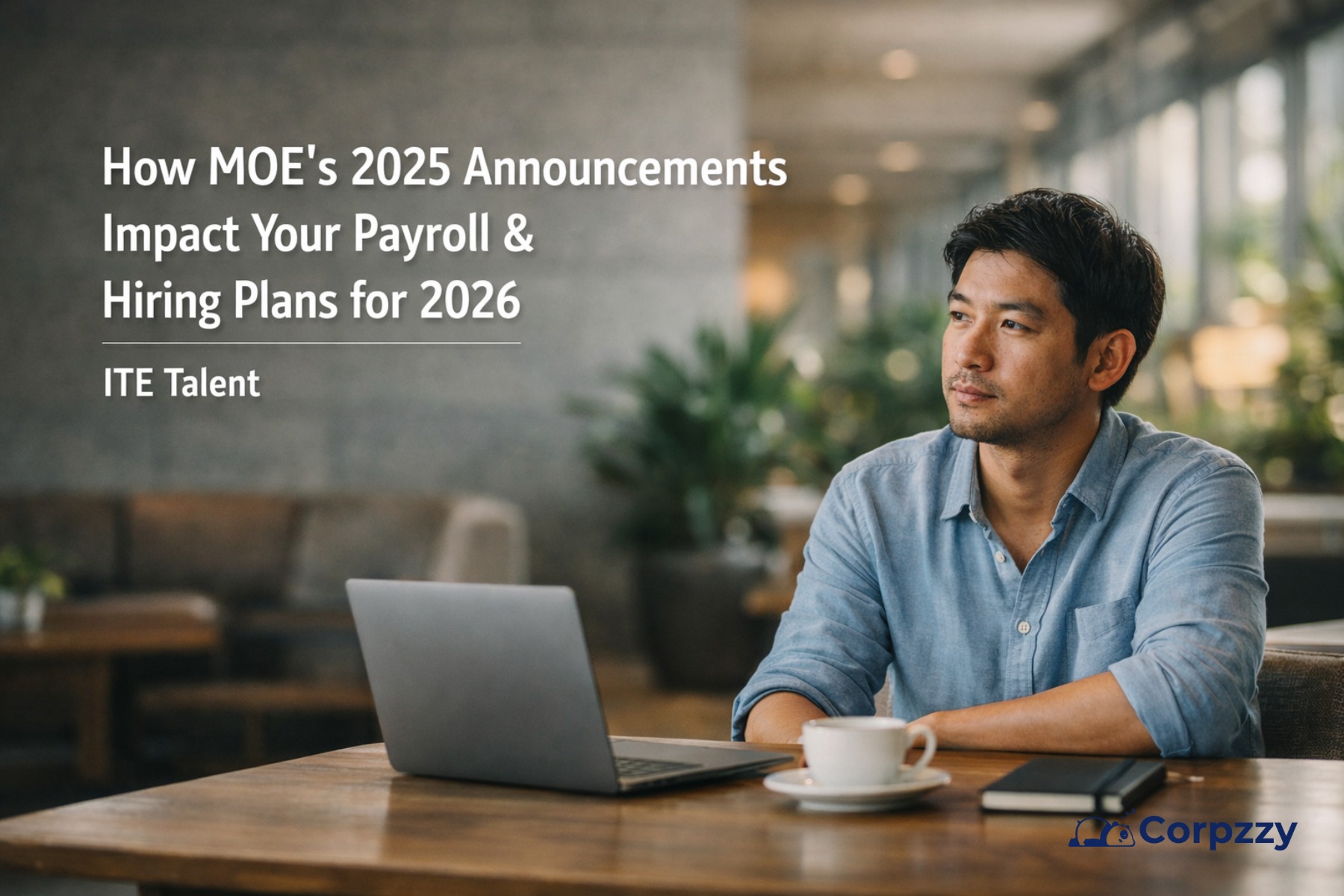AI Is Changing the Way Companies Work in Southeast Asia: Key Trends for 2025
AI Is Changing the Way Companies Work in Southeast Asia: Key Trends for 2025
Outline

Artificial Intelligence (AI) is no longer a distant innovation—it is transforming the way professional service firms and corporations operate across Southeast Asia. Countries like Malaysia and Singapore are at the forefront of embracing AI in legal, finance, human resources, and public administration. As companies seek more agile and data-driven operations, AI has become a critical lever for productivity, talent transformation, and competitive advantage. The convergence of insights from Thomson Reuters and Deloitte highlights seven key AI trends that are reshaping the regional corporate landscape in 2025.
Adoption Is Moving from Individuals to Entire Enterprises
In the early years, AI usage in Southeast Asian companies was mostly isolated to individual experimentation with tools like ChatGPT. In 2024, only 12% of professional service firms had adopted AI at scale, according to the Thomson Reuters Institute. But by late 2024, 79% of companies surveyed globally reported using enterprise-grade tools like Microsoft Copilot. In Malaysia and Singapore, more firms are now embedding GenAI into daily operations beyond personal productivity tools. Organizations are increasingly investing in company-wide AI rollouts. This shift is particularly visible in law firms, accounting practices, and large enterprises with complex workflows. Singapore-based corporate groups are leading regional adoption due to stronger digital infrastructure and government support. Malaysian SMEs are catching up quickly by integrating affordable AI-powered platforms for time tracking, invoicing, and client communications. 📌 Source: Thomson Reuters
AI Is Reshaping Core Business Functions in Southeast Asia
AI is transforming how companies perform essential tasks across professional and back-office functions. Deloitte’s research identifies applications including automated accounting, real-time operations monitoring, digital customer support, and AI-generated financial analysis. In Malaysia, audit and tax advisory firms are using AI to reconcile ledgers, detect anomalies, and accelerate compliance checks. In Singapore, HR departments are streamlining hiring, onboarding, and employee engagement using AI chatbots and analytics. AI is also reducing friction in service delivery for consulting and legal practices. Document drafting, case summaries, and contract analysis can now be completed in a fraction of the time. Companies using AI for knowledge management and research are achieving faster turnaround times and increased billable efficiency. This trend is helping both boutique firms and global MNCs optimize costs and deliver high-value outcomes. 📌 Source: Deloitte
Automation Frees Professionals to Focus on Strategic Work
AI is not just about doing the same work faster—it’s about changing what kind of work gets done by people. By offloading repetitive and manual tasks to AI systems, employees across Malaysia and Singapore are focusing more on judgment-based, creative, and client-facing responsibilities. Accounting professionals can now shift from manual reconciliations to financial advisory. Legal professionals are moving from routine drafting to litigation strategy and client negotiation. Human resources teams are reallocating their time from paperwork to workforce development and employee wellbeing. Engineers and IT support teams are using AI to monitor performance and address anomalies before they become critical. In doing so, AI is acting as a force multiplier across industries. Organizations that empower staff with AI tools are seeing stronger engagement and greater productivity across functions.
AI Is Changing Job Roles, Not Just Replacing Them
Early concerns about job loss due to AI are giving way to a more realistic view: roles are evolving. In law firms, junior associates are doing less routine drafting and more complex case work. According to Thomson Reuters, the percentage of associates in midsize and large law firms has dropped from 44.5% in 2009 to just over 40% in 2024. Firms are instead hiring lateral talent and upskilling existing teams. In Southeast Asia, the trend is similar across professional services. Firms are reevaluating hiring practices and prioritizing candidates who can work alongside AI systems. In the tax and accounting sector, 55% of professionals anticipate role changes within the next three to five years. Roles are shifting toward advisory, digital strategy, and analytics. 📌 Source: Thomson Reuters
AI Training Now Includes Human-Centric Skills
Training employees to use AI tools is only the first step. Companies in Singapore and Malaysia are now building comprehensive programs that include soft skills like adaptability, creativity, and problem-solving. According to the Future of Professionals Report, executives see enthusiasm for technology and efficiency as the most valuable post-AI traits. These attributes help employees collaborate effectively with AI systems rather than depend on them passively. Thomson Reuters highlights a key concern: over-reliance on AI can hinder professional skill development. This is especially important in sectors like legal, compliance, and risk, where human context and ethical interpretation are critical. Employers must balance automation with cognitive enrichment. A human-in-the-loop approach is becoming the standard for AI deployment in regulated industries.
Government and Courts Begin Embracing GenAI
Public-sector adoption of AI in Southeast Asia has lagged behind the private sector, but that’s beginning to change. In early 2024, only 14% of government agencies and 9% of courts surveyed globally had formal GenAI policies in place. However, rising demand for efficiency, talent shortages, and budget constraints are prompting governments to reassess AI adoption. In Malaysia, digital government initiatives like MyDigital are paving the way for structured AI use. Singapore’s Smart Nation initiative is further along, supporting AI integration in public services, healthcare, and education. Courts and regulatory bodies are also exploring AI tools for case analysis, record management, and public service delivery. As trust and policy frameworks mature, public-sector AI adoption will accelerate. AI is also being seen as a tool to attract tech-savvy talent into civil service roles. 📌 Sources: Thomson Reuters
Guardrails Are Essential for Responsible AI Use
As AI adoption grows, so do the risks associated with it. Deloitte emphasizes the importance of governance, including data accuracy, privacy, and ethical AI practices. In Southeast Asia, firms must also comply with country-specific data laws like Malaysia’s PDPA and Singapore’s PDPA Act. Organizations must establish clear guardrails to avoid unintended consequences or legal exposure. Firms should implement internal AI policies, audit AI-generated outputs, and assign cross-functional teams to manage risk. Explainability, transparency, and bias mitigation are becoming critical aspects of AI governance. Companies are expected to document decision-making processes and keep humans accountable for final outcomes. AI systems must serve as decision-support, not decision-makers, especially in high-stakes environments. 📌 Source: Deloitte
Infrastructure Investments Are Accelerating AI Maturity
To support enterprise-wide AI, firms are investing in dedicated infrastructure. This includes GPU-powered data centers, private AI models, and cloud-native services tailored to industry needs. Singapore-based firms are prioritizing cloud governance, while Malaysian companies are exploring on-premise solutions for data-sensitive use cases. These infrastructure moves allow companies to scale AI securely and cost-effectively. Organizations are also partnering with AI ecosystems to speed up adoption. Strategic collaborations with AI vendors, research universities, and startups are emerging across Southeast Asia. These partnerships allow firms to tap into cutting-edge innovations and domain-specific expertise. Building a robust AI foundation is no longer optional—it is essential for long-term competitiveness.
AI Is Driving New Business Models and Pricing Structures
As AI accelerates deliverables, traditional pricing models—especially time-based billing—are being reconsidered. Professional firms in legal, consulting, and accounting are exploring value-based pricing that aligns with outcomes rather than time spent. Clients are demanding faster service, greater transparency, and measurable ROI. AI makes it possible to meet these expectations without overextending human resources. Subscription-based models, bundled services, and performance-linked contracts are emerging. These models allow firms to monetize AI-driven efficiencies while still providing high-value human oversight. In Southeast Asia, early adopters are already piloting hybrid billing frameworks. The transition reflects a broader shift: AI is changing not only how work is done but how it’s valued.
Preparing the Workforce for the AI-Powered Future
To fully benefit from AI, Southeast Asian companies must future-proof their talent. This involves not just hiring for AI fluency but investing in upskilling programs for current employees. Deloitte recommends that companies adopt intelligent design principles and nurture a culture of collaboration between humans and machines. Forward-thinking companies are creating AI literacy tracks, certification programs, and sandbox environments for internal experimentation. Workforce preparedness is especially critical in sectors where regulation and ethics intersect with automation. Legal, finance, healthcare, and government agencies are already facing pressure to develop formal AI competency frameworks. HR departments are including AI aptitude in performance reviews and career progression paths. Building AI confidence across the organization will be a defining success factor in 2025 and beyond. 📌 Source: Deloitte
Conclusion: A Southeast Asian Perspective on AI’s Business Transformation
AI is reshaping how companies work, grow, and compete across Southeast Asia. From Kuala Lumpur to Singapore, businesses are adopting AI not just for speed and scale—but to deliver smarter, more human-centric outcomes. The organizations that succeed will be those that pair technology with trust, automation with accountability, and productivity with purpose. In the age of AI, leadership means knowing where to let machines work—and where to let people lead. Firms that act now—by implementing governance, training teams, and evolving business models—will be the ones to define the future of professional services in the region. AI is not just a tool. It’s a strategic enabler for long-term resilience and growth.
Frequently Asked Questions
Questions? We Have Answers
Related Business Articles
Share This Story, Choose Your Platform!


Artificial Intelligence (AI) is no longer a distant innovation—it is transforming the way professional service firms and corporations operate across Southeast Asia. Countries like Malaysia and Singapore are at the forefront of embracing AI in legal, finance, human resources, and public administration. As companies seek more agile and data-driven operations, AI has become a critical lever for productivity, talent transformation, and competitive advantage. The convergence of insights from Thomson Reuters and Deloitte highlights seven key AI trends that are reshaping the regional corporate landscape in 2025.
Adoption Is Moving from Individuals to Entire Enterprises
In the early years, AI usage in Southeast Asian companies was mostly isolated to individual experimentation with tools like ChatGPT. In 2024, only 12% of professional service firms had adopted AI at scale, according to the Thomson Reuters Institute. But by late 2024, 79% of companies surveyed globally reported using enterprise-grade tools like Microsoft Copilot. In Malaysia and Singapore, more firms are now embedding GenAI into daily operations beyond personal productivity tools. Organizations are increasingly investing in company-wide AI rollouts. This shift is particularly visible in law firms, accounting practices, and large enterprises with complex workflows. Singapore-based corporate groups are leading regional adoption due to stronger digital infrastructure and government support. Malaysian SMEs are catching up quickly by integrating affordable AI-powered platforms for time tracking, invoicing, and client communications. 📌 Source: Thomson Reuters
AI Is Reshaping Core Business Functions in Southeast Asia
AI is transforming how companies perform essential tasks across professional and back-office functions. Deloitte’s research identifies applications including automated accounting, real-time operations monitoring, digital customer support, and AI-generated financial analysis. In Malaysia, audit and tax advisory firms are using AI to reconcile ledgers, detect anomalies, and accelerate compliance checks. In Singapore, HR departments are streamlining hiring, onboarding, and employee engagement using AI chatbots and analytics. AI is also reducing friction in service delivery for consulting and legal practices. Document drafting, case summaries, and contract analysis can now be completed in a fraction of the time. Companies using AI for knowledge management and research are achieving faster turnaround times and increased billable efficiency. This trend is helping both boutique firms and global MNCs optimize costs and deliver high-value outcomes. 📌 Source: Deloitte
Automation Frees Professionals to Focus on Strategic Work
AI is not just about doing the same work faster—it’s about changing what kind of work gets done by people. By offloading repetitive and manual tasks to AI systems, employees across Malaysia and Singapore are focusing more on judgment-based, creative, and client-facing responsibilities. Accounting professionals can now shift from manual reconciliations to financial advisory. Legal professionals are moving from routine drafting to litigation strategy and client negotiation. Human resources teams are reallocating their time from paperwork to workforce development and employee wellbeing. Engineers and IT support teams are using AI to monitor performance and address anomalies before they become critical. In doing so, AI is acting as a force multiplier across industries. Organizations that empower staff with AI tools are seeing stronger engagement and greater productivity across functions.
AI Is Changing Job Roles, Not Just Replacing Them
Early concerns about job loss due to AI are giving way to a more realistic view: roles are evolving. In law firms, junior associates are doing less routine drafting and more complex case work. According to Thomson Reuters, the percentage of associates in midsize and large law firms has dropped from 44.5% in 2009 to just over 40% in 2024. Firms are instead hiring lateral talent and upskilling existing teams. In Southeast Asia, the trend is similar across professional services. Firms are reevaluating hiring practices and prioritizing candidates who can work alongside AI systems. In the tax and accounting sector, 55% of professionals anticipate role changes within the next three to five years. Roles are shifting toward advisory, digital strategy, and analytics. 📌 Source: Thomson Reuters
AI Training Now Includes Human-Centric Skills
Training employees to use AI tools is only the first step. Companies in Singapore and Malaysia are now building comprehensive programs that include soft skills like adaptability, creativity, and problem-solving. According to the Future of Professionals Report, executives see enthusiasm for technology and efficiency as the most valuable post-AI traits. These attributes help employees collaborate effectively with AI systems rather than depend on them passively. Thomson Reuters highlights a key concern: over-reliance on AI can hinder professional skill development. This is especially important in sectors like legal, compliance, and risk, where human context and ethical interpretation are critical. Employers must balance automation with cognitive enrichment. A human-in-the-loop approach is becoming the standard for AI deployment in regulated industries.
Government and Courts Begin Embracing GenAI
Public-sector adoption of AI in Southeast Asia has lagged behind the private sector, but that’s beginning to change. In early 2024, only 14% of government agencies and 9% of courts surveyed globally had formal GenAI policies in place. However, rising demand for efficiency, talent shortages, and budget constraints are prompting governments to reassess AI adoption. In Malaysia, digital government initiatives like MyDigital are paving the way for structured AI use. Singapore’s Smart Nation initiative is further along, supporting AI integration in public services, healthcare, and education. Courts and regulatory bodies are also exploring AI tools for case analysis, record management, and public service delivery. As trust and policy frameworks mature, public-sector AI adoption will accelerate. AI is also being seen as a tool to attract tech-savvy talent into civil service roles. 📌 Sources: Thomson Reuters
Guardrails Are Essential for Responsible AI Use
As AI adoption grows, so do the risks associated with it. Deloitte emphasizes the importance of governance, including data accuracy, privacy, and ethical AI practices. In Southeast Asia, firms must also comply with country-specific data laws like Malaysia’s PDPA and Singapore’s PDPA Act. Organizations must establish clear guardrails to avoid unintended consequences or legal exposure. Firms should implement internal AI policies, audit AI-generated outputs, and assign cross-functional teams to manage risk. Explainability, transparency, and bias mitigation are becoming critical aspects of AI governance. Companies are expected to document decision-making processes and keep humans accountable for final outcomes. AI systems must serve as decision-support, not decision-makers, especially in high-stakes environments. 📌 Source: Deloitte
Infrastructure Investments Are Accelerating AI Maturity
To support enterprise-wide AI, firms are investing in dedicated infrastructure. This includes GPU-powered data centers, private AI models, and cloud-native services tailored to industry needs. Singapore-based firms are prioritizing cloud governance, while Malaysian companies are exploring on-premise solutions for data-sensitive use cases. These infrastructure moves allow companies to scale AI securely and cost-effectively. Organizations are also partnering with AI ecosystems to speed up adoption. Strategic collaborations with AI vendors, research universities, and startups are emerging across Southeast Asia. These partnerships allow firms to tap into cutting-edge innovations and domain-specific expertise. Building a robust AI foundation is no longer optional—it is essential for long-term competitiveness.
AI Is Driving New Business Models and Pricing Structures
As AI accelerates deliverables, traditional pricing models—especially time-based billing—are being reconsidered. Professional firms in legal, consulting, and accounting are exploring value-based pricing that aligns with outcomes rather than time spent. Clients are demanding faster service, greater transparency, and measurable ROI. AI makes it possible to meet these expectations without overextending human resources. Subscription-based models, bundled services, and performance-linked contracts are emerging. These models allow firms to monetize AI-driven efficiencies while still providing high-value human oversight. In Southeast Asia, early adopters are already piloting hybrid billing frameworks. The transition reflects a broader shift: AI is changing not only how work is done but how it’s valued.
Preparing the Workforce for the AI-Powered Future
To fully benefit from AI, Southeast Asian companies must future-proof their talent. This involves not just hiring for AI fluency but investing in upskilling programs for current employees. Deloitte recommends that companies adopt intelligent design principles and nurture a culture of collaboration between humans and machines. Forward-thinking companies are creating AI literacy tracks, certification programs, and sandbox environments for internal experimentation. Workforce preparedness is especially critical in sectors where regulation and ethics intersect with automation. Legal, finance, healthcare, and government agencies are already facing pressure to develop formal AI competency frameworks. HR departments are including AI aptitude in performance reviews and career progression paths. Building AI confidence across the organization will be a defining success factor in 2025 and beyond. 📌 Source: Deloitte
Conclusion: A Southeast Asian Perspective on AI’s Business Transformation
AI is reshaping how companies work, grow, and compete across Southeast Asia. From Kuala Lumpur to Singapore, businesses are adopting AI not just for speed and scale—but to deliver smarter, more human-centric outcomes. The organizations that succeed will be those that pair technology with trust, automation with accountability, and productivity with purpose. In the age of AI, leadership means knowing where to let machines work—and where to let people lead. Firms that act now—by implementing governance, training teams, and evolving business models—will be the ones to define the future of professional services in the region. AI is not just a tool. It’s a strategic enabler for long-term resilience and growth.
Frequently Asked Questions
Questions? We Have Answers
Share This Story, Choose Your Platform!




